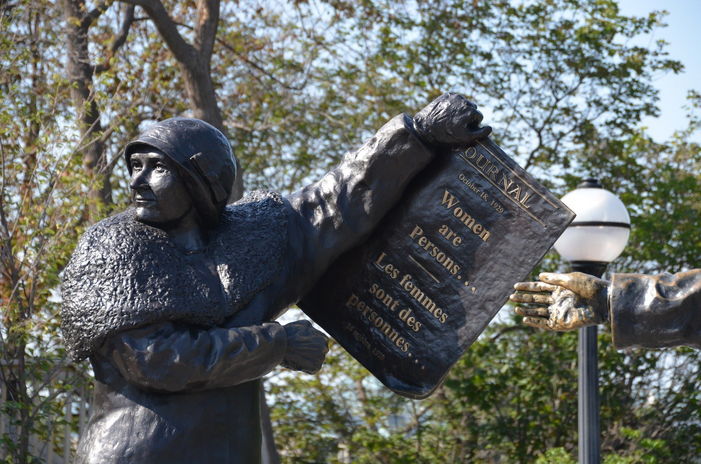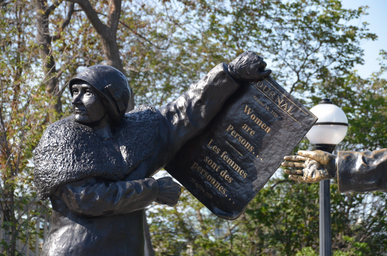From the times in which women could only be wives and mothers to a time like now where we see ourselves in virtually any field, I am continually amazed at the things we are capable of. Mary Wollstonecraft famously wrote in her work The Vindication of the Rights of a Woman that the main reason as to why women were deemed as less than men in society was because they lacked access to education. This was a never-ending cycle that has prolonged the achievement of gender equality, something that we can even observe in some countries today in the 21st century. Wollstonecraft didn’t have the opportunity to advance in life because she was a woman. Fortunately, with the social liberties of this day and age, in the United States, we, women, do have this ability to choose the life we want for ourselves, even if it comes filled with biased and unjust obstacles.
Mary Wollstonecraft was an early advocate for women to have access to education. I consider education, in terms of schooling but also in terms of experiences, to be the main concept that as a woman can allow you to move in life because it will give you the knowledge needed and the tools necessary to be able to make informed choices on what is right for you in your life.
But, even an educated woman with the ability to make choices for herself can face inequalities posed by gender, such as the gender wage gap. According to the “Why Women Are Paid Less” episode of VOX’s Netflix series Explained, the wage gap affects mostly mothers, as women who are childless make about 96% of every dollar a man makes. The episode explains that women are not given the opportunity to make their own choices as men are because they are expected to act and behave a certain way. And what way is that? They are anticipated to be mothers, and if they are to have a career, that is seen as an extra thing in their life. This is because women are also expected to be the primary caregivers of their children. Thus, if the child is sick or has an activity in school, it tends to be expected of the mother to turn down work or business travel and take their child to these events.
The main picture here is that yes, we women are fighting for gender equality in society, but essentially for our right to choose. If women choose to be caregivers and choose to be mothers, they should not be punished for that while their husbands get promoted and advance in their field. So, the issue really is attributed to the way society sees women. If women are seen as caregivers and mothers, or future mothers, then they are not seen as individuals with the potential to achieve and accomplish great things. It is out of the expectation that women should be caregivers, that pay inequality comes from. As Rachel McAdams, the narrator of this episode, explains, society needs to change the approach of how men and women are perceived in society, to really move toward a more productive way of life.

In our society, the experience of being a woman ranges. It is important to note that while women face various hardships, we are not the only subject to them, nor do women as a whole face these hardships the same because we are not identified simply for being women, but rather for the variety of singularities that together make each of us whole. These singularities range from race, ethnicity, socioeconomic background, educational background, family background and sexual orientation and identity, among many other things. In addition to the already imposed inequalities such as the gender pay gap, it is important to understand this, for it is in this intersectional way that we navigate the world. Today, even if we can part with the expectations that are bestowed upon us, these factors still restrict the abilities of each woman and how far she can go in life.
The various inequalities we face are what make us stronger. I have learned that while we struggle and continue to push on, it is in many cases, not despite these issues, but because of them that we rise up to the occasion. I can only imagine how much more the world could be if half the population was not limited to what they can and cannot do on the basis of gender and were encouraged based on their merit. Perhaps, we could have developed a solution to climate change, achieved international peace and solved world hunger by now.
This year is the centennial of the 19th amendment to the U.S. constitution going into effect, the anniversary of the first U.S. election where women could vote. This commemoration puts into perspective how far we women have come in the fight for gender equality and how different our lives would have been this long ago. Today, in 2020, a year of such political divisiveness, it is clear that women are a demographic that deserves to have more attention given to the issues we face, and the way to do it is to make our voices heard through our vote on Nov. 3rd.
Want to see more HCFSU? Be sure to like us on Facebook and follow us on Instagram, Twitter, TikTok, Youtube and Pinterest!



